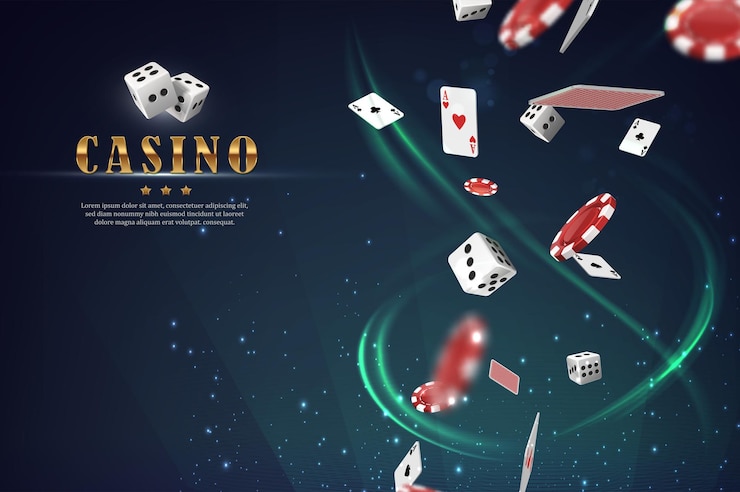The online casino industry is booming, with thousands of platforms offering everything from slot machines to live dealer games. But with this explosion in popularity comes a significant concern: safety. How do you know if an online casino is trustworthy? How can you protect your money and personal data while enjoying the thrill of gambling online?
In this article, we explore what makes an online casino safe, how to spot red flags, and the best practices for secure online gambling.
What Is a Safe Online Casino?
A safe online casino is one that operates legally, protects user information, ensures fair play, and provides transparent financial practices. These casinos are licensed, encrypted, regularly audited, and committed to responsible gaming.
Playing at a reputable site doesn’t just enhance your experience—it protects you from fraud, identity theft, and rigged games.
1. Licensing and Regulation
The first sign of a safe online casino is a valid license from a recognized regulatory authority. Legitimate licenses include:
UK Gambling Commission (UKGC)
Malta Gaming Authority (MGA)
Gibraltar Regulatory Authority
Curacao eGaming
Isle of Man Gambling Supervision Commission
These bodies enforce strict rules about data protection, player fairness, and financial transparency. A license ensures the casino is held accountable to a governing body.
Tip: Always scroll to the bottom of the casino’s homepage to find their licensing information—and verify it on the official regulator’s website.
2. Data Protection and Encryption
A secure online casino uses SSL (Secure Socket Layer) encryption to protect user data, including financial transactions, passwords, and personal details. Look for:
A padlock icon in the browser address bar
“https://” at the start of the URL
Clear privacy policies detailing how your data is stored and used
This encryption makes it extremely difficult for hackers to intercept sensitive information.
3. Fairness and Game Auditing
Trustworthy casinos ensure fair play by using Random Number Generators (RNGs). RNGs ensure that game outcomes are truly random and not rigged in favor of the house.
Many top-tier casinos work with independent testing agencies, such as:
eCOGRA
iTech Labs
GLI (Gaming Laboratories International)
These organizations audit games for fairness and publish payout percentages (Return to Player or RTP).
Tip: Look for certification badges from these bodies on the casino site.
4. Payment Security and Transparency
Safe casinos offer secure, well-known payment methods like:
Credit/debit cards
PayPal
Skrill and Neteller
Bank transfers
Cryptocurrency (on some platforms)
They also list clear terms for deposits and withdrawals, including:
Minimum and maximum limits
Processing times
Identity verification requirements (KYC)
Avoid any site that makes it hard to withdraw your winnings or delays payments without justification.
5. Responsible Gambling Tools
A safe online casino encourages responsible gambling. Look for tools and resources such as:
Deposit, wager, and time limits
Self-exclusion options
Reality checks and session timers
Links to support organizations like GamCare or Gamblers Anonymous
These features show the casino values player well-being over profits.
6. Reliable Customer Support
Top-rated casinos offer 24/7 customer support via live chat, email, or phone. Safe casinos also include a robust FAQ section for quick answers.
To test support quality, try asking a basic question before registering. A fast, clear, and polite response is a good sign.
7. Positive Reputation and User Reviews
Reputation matters. Check out forums, social media, and trusted review sites to see what other players say. Consistent complaints about withdrawal issues, account bans, or rigged games are major red flags.
Also, check if the casino has won any industry awards—recognition from organizations like EGR or IGA can indicate credibility.
Warning Signs of Unsafe Casinos
Avoid online casinos that:
Lack a valid license or provide no regulatory information
Have vague or confusing withdrawal terms
Use fake security seals or unverifiable RNG certifications
Offer unrealistic bonuses (e.g., “1000% deposit match” with no terms)
Don’t have SSL encryption
Don’t offer customer support
Tip: If something feels “off” about a casino, trust your instincts—better to be safe than sorry.
Best Practices for Staying Safe Online
Even at a licensed, secure casino, you should follow these safety tips:
Use Strong Passwords: Use unique passwords and two-factor authentication (2FA) if available.
Avoid Public Wi-Fi: Always play on a secure, private internet connection.
Monitor Your Accounts: Regularly check your banking statements for unauthorized charges.
Limit Shared Devices: Avoid logging in from shared or public devices.
Stay Informed: Follow gambling news to be aware of blacklisted sites or security alerts.
Conclusion
The internet offers a world of casino entertainment at your fingertips—but it also presents risks. Choosing a safe online casino means protecting your money, identity, and personal data while enjoying fair, fun gameplay. By verifying licenses, reading terms carefully, and practicing good online hygiene, you can gamble smart and secure in the digital age.


